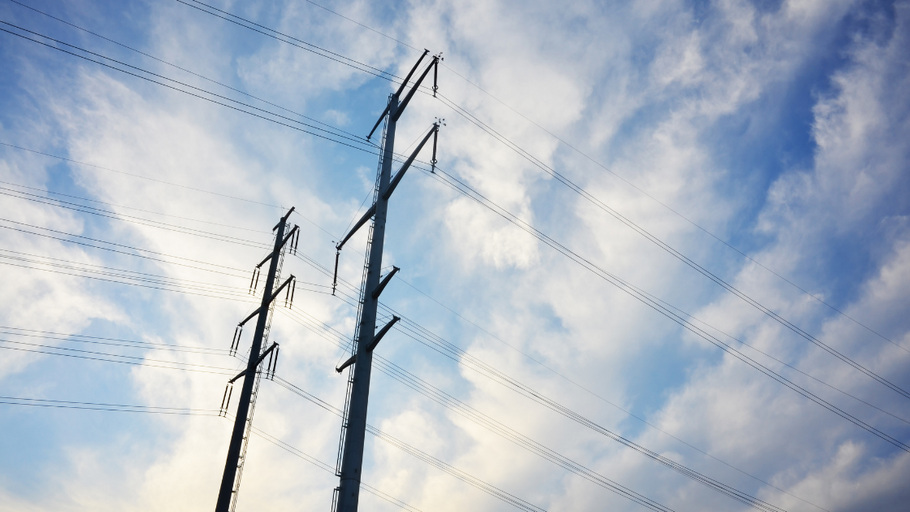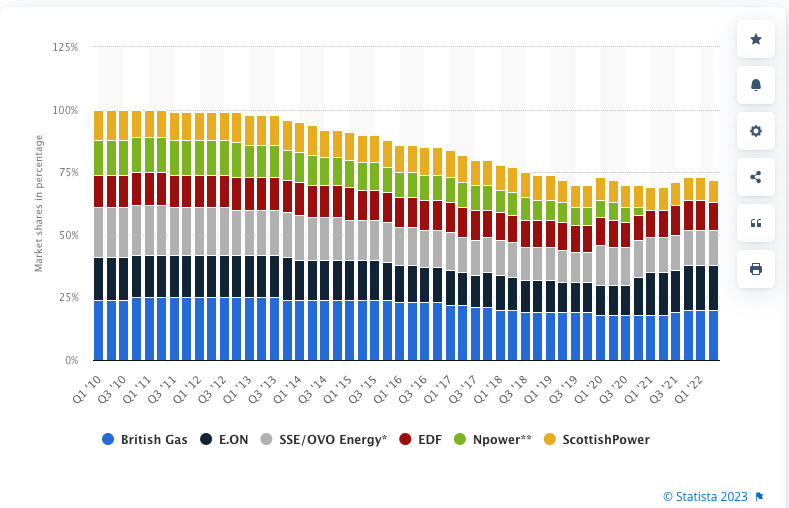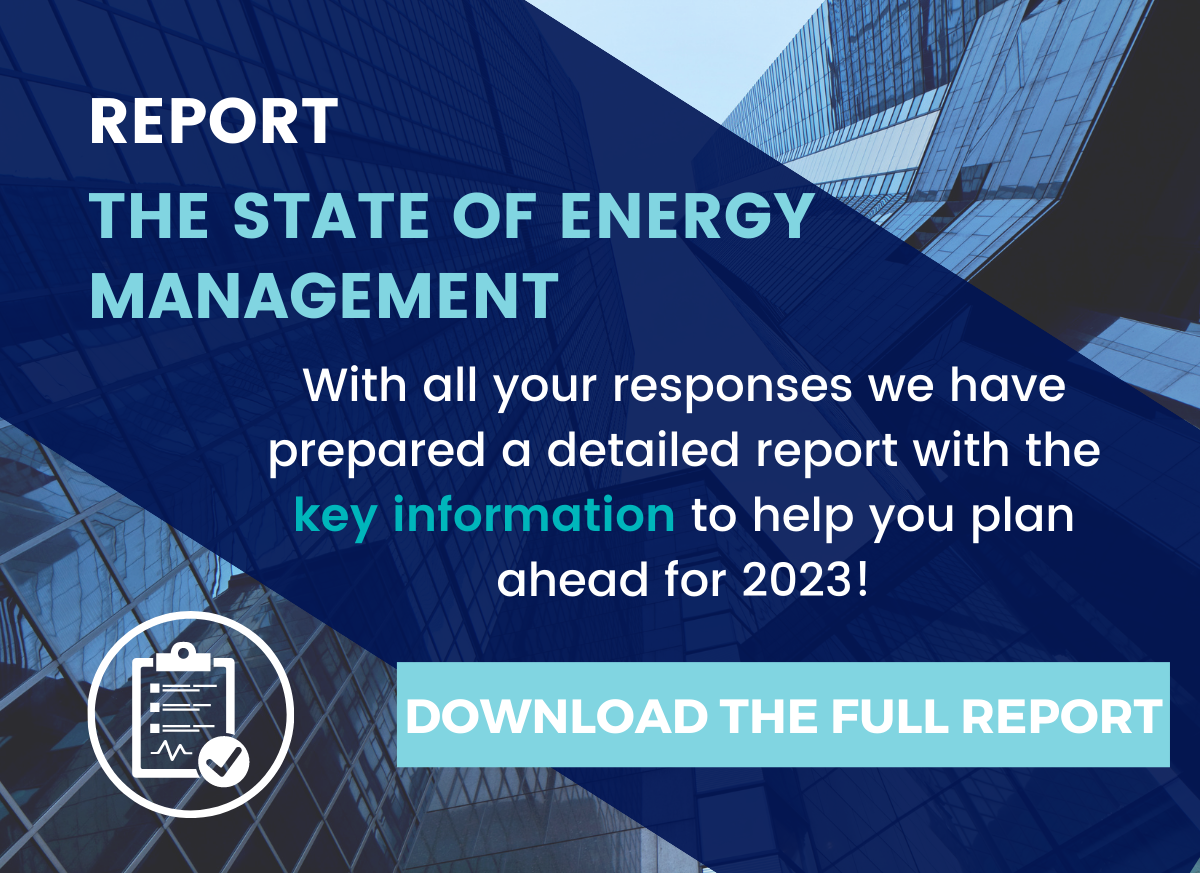Utilities are players with whom we all interact. We all contract energy for our businesses and homes, and at some point, we want to compare offers to see who offers the best service. Last week we looked at the annual energy management survey responses and discussed the current challenges and objectives of Energy Service Companies (ESCOs).
We were glad to have gathered data from various Utilities in our Energy Management Report, which you can download here.
In this article, we want to focus on utilities. We will look at the market situation in the UK, and the customer attrition rate and also discuss the energy efficiency services that utilities can offer to their customers.
This article may reflect some of your key challenges if you work for a Utility company. So please let us know if you think what you find in this article is similar to one or more of your own experiences.
Utility Companies operating in the UK
The Big six companies; British Gas, EON next, SSE/Ovo, Npower, EDF Energy, and Scottish Power, are the six largest Utility companies in the UK. The following graph shows their domestic electricity supply market shares.
These utilities are regulated by the OFGEM, the Office of Gas and Electricity Markets, responsible for ensuring that energy companies comply with rules and regulations and that consumers are protected.
According to OFGEM, these largest energy companies in the UK are now supplying 72% of British households and businesses with gas and electricity. However, it’s important to note that other energy providers are available in the market. Indeed, in recent years, new and smaller utilities have also entered the market, providing competition and more options for customers. Despite their smaller size, they still remain relevant options to choose from and are already accounting for 28% of the supply. In addition, Energy Communities and self-renewable energy projects are also becoming more popular in the UK, as confirmed by the results of our survey.
Energy Services offered by Utilities
As a utility, you should be aware that simply providing energy and delivering it to customers is no longer sufficient. The 2022 survey shows that energy efficiency and monitoring solutions and solar energy are becoming key additions to utilities’ portfolios.
Energy Efficiency Services
Those unfamiliar with the energy industry may find it surprising that Utilities now offer services promoting energy efficiency and lower consumption. It may seem paradoxical for a business that profits from supplying energy to encourage customers to use less. Even professionals in the sector may have questioned this concept at some point.
As a utility, you are faced with a delicate balance between assisting customers in reducing energy consumption while maintaining revenue from additional services, and promoting slower growth by increasing customer loyalty and retaining them from competitors. Finding the right balance can be challenging.
Other services such as sustainable mobility and certifications are also being offered by some utilities to their customers. It remains to be seen if these services will become more widespread or remain niche.
Photovoltaic Solar Energy Solutions
Utilities were reactive when it comes to offering services related to the current boom in photovoltaic solar energy and self-consumption. Services such as the supply of solar energy, assistance with panel installation, maintenance, and financing are becoming increasingly common.
The use of solar panels in the UK has been increasing in recent years. Last year, there was an average of more than 5,000 solar panel (PV) systems installed per month in the UK. According to the Department of Business, Energy & Industrial Strategy (BEIS), the total installed capacity of solar panels in the UK reached 14 GW in 2022 distributed across 1,178,241 installations. This represents a significant increase from 2010 when the total installed capacity was just 0.5 GW.
Driven by the energy crisis, many individuals and professionals have decided to produce part of their energy themselves, in order to better control and reduce their costs. Indeed, according to 19% of respondents, this way of producing energy will be one of the future trends for the energy sector. The majority of energy suppliers have anticipated this trend as 66% of them already offer solar energy management services.
Challenges faced by Utilities
Savings verification is crucial for both Utilities and ESCOs, as we have seen last week. To accurately calculate and assess the effectiveness of energy efficiency measures, specialised knowledge and technology are required, as well as time for monitoring. Measurement & Verification (M&V) solutions like Dexma Analyse can assist professionals in analysing and managing energy consumption data.
A high Attrition rate among Utility Companies
In industries characterised by high dynamics and competition, it is quite common for consumers to frequently switch suppliers. This is the case in banking and telecommunications but also in the energy sector. The reason is that the high competition leads to appealing offers that attract customers looking for better prices, advice or new services.
At Dexma, we are dedicated to supporting Utilities and enhancing their services. We have previously discussed this topic in our article about utilities’ challenges, but it’s crucial to understand that the data needs to be analysed in the context of the current scenario.
According to our 2022 survey, 80% of participants stated that their customer attrition rate has risen over the past year due to the energy crisis. With the significant price increases experienced in 2022, we see how this has prompted many consumers, both residential and commercial, to switch Utilities. Customers are seeking ways to cut costs and also receive services and guidance on reducing consumption.
Small and medium-sized businesses (SMEs) and the manufacturing sector are the industries that have the highest rate of switching utilities. This trend has been observed in recent years, as we discussed in our article on the evolution of the switching rate. It is evident that this rate continues to rise and is not limited to the UK. Additionally, it is important to highlight that is not necessarily a negative phenomenon, as you will see in the following section.
Attrition rate in Europe
To understand these rates better, we can look at European data from the Agency for the Cooperation of Energy Regulators (ACER). A 2022 study by ACER found that the highest turnover rates are in the Netherlands, Belgium, and Norway, and exceed 20%.
The ACER also states that a high turnover rate can be a positive indicator for the market, as it suggests that the process of switching utilities is relatively easy and flexible for consumers.
It also indicates that consumers are active and well aware of the various options available to them. In the UK, we can count about 60 Utilities in operation. From a utility professional’s perspective, losing customers may not seem positive, which is why providing valuable additional services, as well as being responsive to their needs and offering advice can help retain their loyalty.
A high turnover rate in the market also presents opportunities to attract new customers. This can be achieved through strategies that focus on customer care, high-quality service, user-friendly technology, continuity, new efficiency services, and more.
In the UK, according to Energy UK’s latest data on electricity switching, the number of customers changing to a new supplier (gas or electricity) was about 5 million in 2021, whereas in 2019, a total of 5,946,000 people switched their electricity supplier and 4,822,000 switched their gas supplier. This combined total is higher than the population of Greater London.
Therefore, Dexma encourages utilities to continuously improve their services and offers support in this process. To learn more about how Dexma can assist you in digitalising and retaining B2B customers, you can also watch our webinar on the topic.





